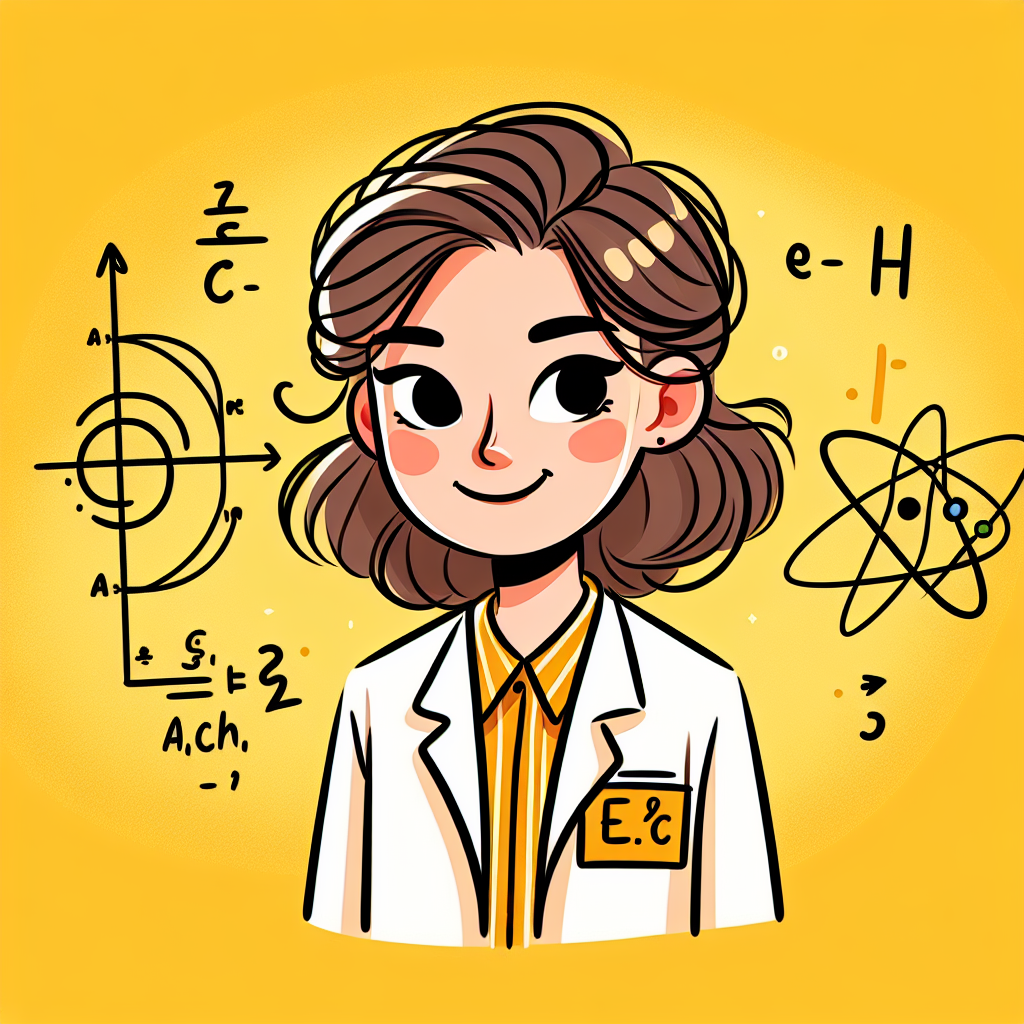
Interview with a famous scientist.
96 other teachers use this template
Subjects
Interview with a famous scientist.

Interviewer: Good day, Madame Curie. It is an immense honor to have you here. Could you share with us your scientific discoveries and your contributions to science?
Marie Curie: Good day, and thank you for having me. My most notable work revolves around the discovery of the elements polonium and radium, as well as pioneering research on radioactivity. My husband Pierre Curie and I worked tirelessly to isolate these elements from pitchblende. This work led to our shared Nobel Prize in Physics in 1903, and later, I was honored with the Nobel Prize in Chemistry in 1911 for my services to the advancement of chemistry by the discovery of radium and polonium, by the isolation of radium and the study of the nature and compounds of this remarkable element.
Interviewer: Your discoveries have indeed revolutionized the field of science. What would you say was the most challenging aspect of your research?
Marie Curie: The most challenging aspect was the sheer physical effort required to process tonnes of pitchblende to extract just a small amount of radium. The work was laborious and required immense perseverance. Additionally, at the time, we did not fully understand the health risks associated with prolonged exposure to radioactive materials, which posed significant personal health challenges.
Interviewer: How did your discoveries impact the scientific community and the world at large?
Marie Curie: Our discoveries opened up new fields of study in both physics and chemistry. The concept of radioactivity fundamentally changed our understanding of atomic structure and the energy contained within atoms. Radium, in particular, found significant applications in medicine, especially in the treatment of cancer through radiotherapy. This demonstrated that scientific research, even when done for the sake of pure knowledge, can lead to practical benefits for humanity.
Interviewer: You mentioned the importance of pure science. Could you elaborate on this philosophy?
Marie Curie: Certainly. We must not forget that when radium was discovered, no one knew that it would prove useful in hospitals. The work was one of pure science. This is proof that scientific work must not be considered from the point of view of direct usefulness. It must be done for itself, for the beauty of science, and then there is always the chance that a scientific discovery may become, like radium, a benefit for humanity.
Interviewer: What advice would you give to young scientists today?
Marie Curie: Life is not easy for any of us. But what of that? We must have perseverance and above all confidence in ourselves. We must believe that we are gifted for something, and that this thing, at whatever cost, must be attained. Be less curious about people and more curious about ideas. In science, we must be interested in things, not in persons.
Interviewer: Your words are truly inspiring. Lastly, how do you view the future of scientific research?
Marie Curie: I am among those who think that science has great beauty. A scientist in his laboratory is not only a technician: he is also a child placed before natural phenomena which impress him like a fairy tale. We should not allow it to be believed that all scientific progress can be reduced to mechanisms and machines. The spirit of adventure and curiosity in science is vital and indestructible. I believe that the future of scientific research holds great promise and potential for furthering our understanding of the world.
Interviewer: Thank you, Madame Curie, for sharing your incredible journey and insights with us. Your legacy continues to inspire countless scientists around the world.
Marie Curie: It was my pleasure. Thank you.
Be less curious about people and more curious about ideas.
Response to a reporter seeking an interview during a vacation with her husband in Brittany, who mistaking her for a housekeeper, asked her if there was anything confidential she could recount, as quoted in Living Adventures in Science (1972), by Henry Thomas and Dana Lee Thomas.
Life is not easy for any of us. But what of that? We must have perseverance and above all confidence in ourselves. We must believe that we are gifted for something, and that this thing, at whatever cost, must be attained.
As quoted in Madame Curie: A Biography (1937) by Eve Curie Labouisse, Part 2, p. 116